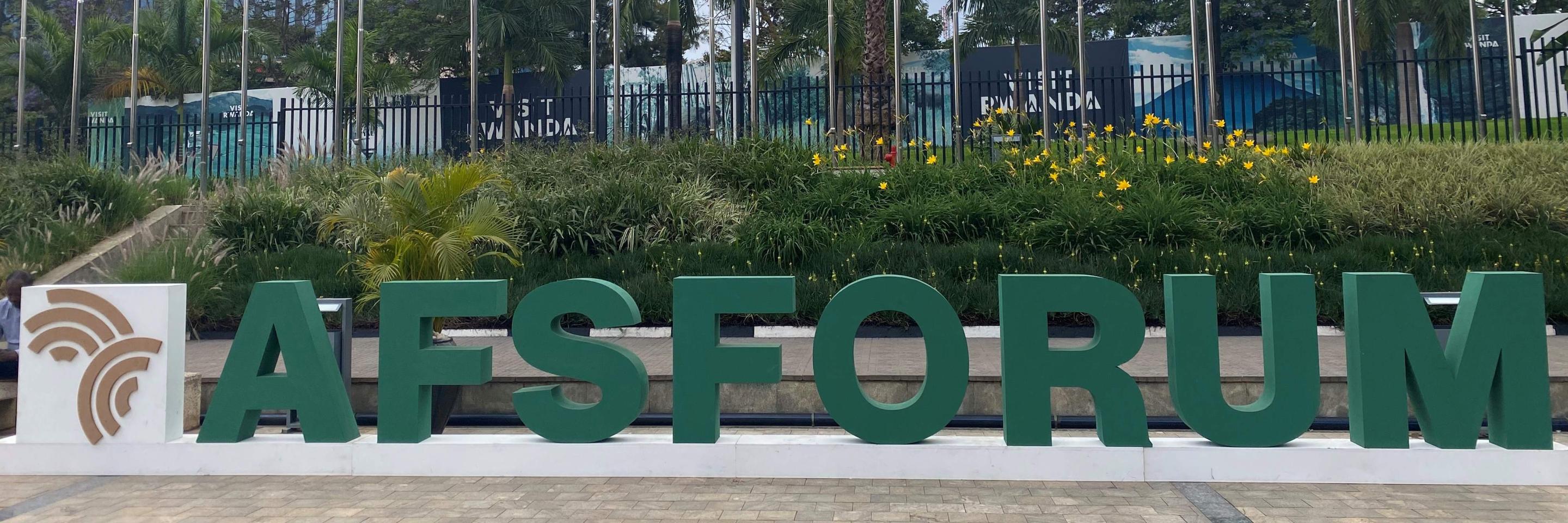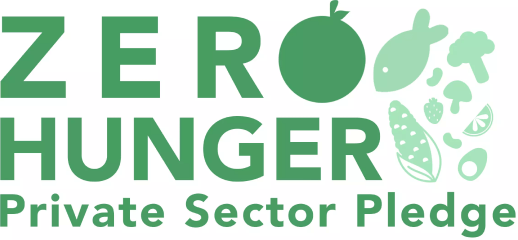
The Zero Hunger Pledge at the 2024 AFS Forum
How are companies investing in ending hunger and enhancing nutrition in Africa? How can they be mobilised to invest even more and to have even more impact? These were key questions investigated by the Zero Hunger Pledge, pledging companies and partners throughout the 2024 Africa Food Systems Forum (AFSF).
From 2 to 6 September, the Zero Hunger Pledge (ZHP) participated in the 2024 AFSF. We convened stakeholders for a side-event co-organised with partners AGRA, ATNI, AUDA-NEPAD and GAIN as well as for a roundtable discussion and cocktail reception under the auspices of the Zero Hunger Coalition’s Chair, Dr. Ibrahim Mayaki.
All events allowed partners, pledging companies and prospective pledgers to meet and discuss key challenges in agri-food value chains and agri-food systems more broadly.
Seizing opportunities, responding to influences
The side event, “Mobilising Private Sector Investments to End Hunger and Enhance Nutrition”, highlighted the central role played by the private sector — including chefs, farmers, aggregators, processors, retailers and investors — in agri-food value chains as well as food systems more broadly.
Panelists represented different parts of the agri-food value chain, illustrating the deep-rooted interconnections inherent in agri-food systems. They presented the positive role they play in making agri-food systems more nutritious and sustainable — from the soil on the farm, to the factory production line, to the store shelf and to the consumer’s plate.
Chef Pinky Maruping, from the Chefs’ Manifesto and Unilever Food Solutions, discussed how she is innovating in the kitchen and training other chefs to respond to diners’ and consumers’ growing appetite for tasty, nutritious and sustainable foods, using locally sourced ingredients to develop delicious plant-based recipes.
Siny Samba, from Le Lionceau, similarly discussed how her company is educating mothers about the importance of infant nutrition. She outlined the crucial role that companies like hers play in linking smallholders with consumers through processing of locally produced traditional crops and retailing of nutritious baby food products.
Whilst the event focused on mobilising private sector investments, speakers also emphasised the importance of the public sector and non-governmental organisations in providing the right incentives and infrastructure to enable companies and investors to play their part in transitioning towards more nutritious and sustainable food systems.
Donors and governments have a complementary and catalytic role in mobilising investments from the private sector towards more sustainable food systems – from providing an enabling environment to driving demand through public procurement and directly financing promising ventures.
As the CEO of a vertically integrated company, Wenslars Bahati of AGRIFACE brought attention to the need for governments to provide a supportive infrastructure and a competitive business environment, including more post-harvest storage facilities, coherent cross-border trade regulations, and dedicated agricultural financing facilities.
Efi Chatzinikolaou of the Access to Nutrition Initiative (ATNI) agreed with the importance of the financing question and focused on the perspective of institutional investors. She underscored the potential of driving investments towards positive systems change if companies and supporting stakeholders realise the financial materiality of nutrition.
Donors also have a role in supporting the private sector. Kagwiria Koome explained how philanthropies like The Rockefeller Foundation work with other donors, governments and non-governmental organisations to support companies, including on reforms to the financial architecture and regenerative agriculture designs.
For Dr. Prem S. Bindraban from the International Fertilizer Development Centre, investments in soil health are essential to ensure food security and nutrition. He mentioned several opportunities for Africa to leapfrog development by adopting innovative technologies to make production systems more efficient and sustainable.
Ultimately, the private sector needs to identify and facilitate opportunities for companies and investors to combine impact with profit. As Dr. Lawrence Haddad of GAIN noted, the Zero Hunger Pledge is one such initiative that provides a unique roadmap for the private sector to ensure they contribute to lower hunger and higher nutrition. It offers an evidence map of where to invest to generate the greatest benefit.
Looking to the future, Chola Mfula, from AUDA-NEPAD, explained how multilateral frameworks, such as the Comprehensive Africa Agricultural Development Programme, should guide governments to end hunger and enhance nutrition on the continent. He stressed the importance of governments and businesses working together to prove the business case and therefore leverage even more investments in the future.
Responding to challenges, strengthening trust
Participants in the roundtable discussion on “Sustainable Supply Chains: Challenges in times of economic and climate uncertainty” exchanged on the importance of linkages between value chain actors, from the farmers supplying processing companies, to companies seeking financing from commercial banks and investors, etc.
Oshani Perera from the Shamba Centre for Food & Climate facilitated the discussion and sought inputs and insights from participants about the interrelationship between farmers and buyers, buyers and sellers. She asked participants to reflect on ways to build better trust along the value chain.
Accordingly, discussants spoke about the challenges related to trust – both between value chain actors themselves and as enforced through a strong regulatory environment. Some noted how farmers are business people too, understandably seeking higher prices for their produce; others noted how contracts are sometimes difficult to legally enforce.
Solutions and strategies to address trust issues between value chain actors ranged from calling farmers individually to establish and maintain a personal rapport to enhancing knowledge sharing through training opportunities and digitalisation of financial information and transactions. As one participant noted, farmers need to view traders as partners who understand their needs and a constant presence throughout the year from planting to harvest.
However, this trust is not one-sided. Buyers, for example, also require farmers to provide high-quality produce and to do so reliably. There is therefore a need to provide consistency and to professionalise the value chain.
Relationships along sustainable supply chains were not only noted as key to unlocking the value of trust, and thus investments in agri-food systems, but they were also recognised as crucial to enhance the resilience of companies and investors to economic and climate shocks.
The conversation continued during a cocktail event, which brought together the network of the Zero Hunger Pledge with that of the Zero Hunger Coalition. This enabled further connections between companies from across the agri-food systems in Africa and beyond, impact investors and blended finance funds, government representatives and parliamentarians, donors and development partners, domestic and international civil society actors, etc.
